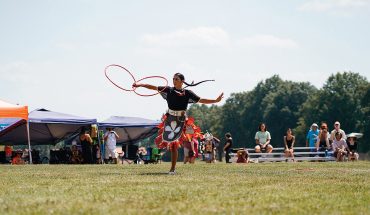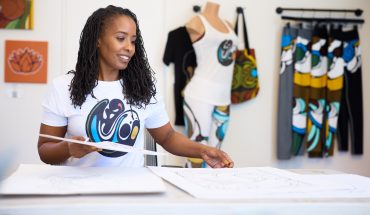Abdul Rasheed founded and runs the North Car- olina Community Development Initiative, based in Raleigh. He was raised without his father or mother, and he lost his 20-year-old son to gun violence. But hardship has never stopped him.
At an early age, the step-grandmother who raised him taught him that being dealt a tough hand in life is no excuse for not working hard. Now he has made it his life’s work to help broken communities heal themselves.
Rasheed, who will be 64 this month, grew up and still lives in Henderson, where as an 11th grader he was one of the first black students to attend Henderson High School. After graduating from Elizabeth City State University, earning two master’s degrees, and embarking on a career as an educator, he became a community organizer and has been working to improve low-income communities ever since.
The Initiative, which he created 20 years ago, has raised nearly $100 million and attracted nearly $500 million more for projects that sustain growth in poor communities. Programs ranging from multi-family housing for seniors, young couples and people with AIDS to senior centers in low-income communities have benefited from his work. But Rasheed says his proudest achievement – one he plans to continue supporting after he retires at 65 – is the summer internship program he created at the Initiative five years ago. It’s a program that teaches “servant-leadership” principles to rising high school seniors.
“We’re trying to get these young people early on to recognize they can be a leader and make a difference,” he says.
What causes do you support?
Elizabeth City State gets most of my money. I’m chair of the board of trustees. And we have a scholarship at Vance-Granville Community College named for my deceased son that supports a local student. I have five children, two daughters and three sons. He was the youngest, shot and killed by a 19-year-old. My granddaughter was born five months after her father’s death. She’s 8. She spends at least four days and nights a week with my wife Marolyn and me.
If you could fix a problem, what would it be?
The senseless death and violence, specifically in the African-American community, being perpetrated by young black males on other black males. In another context, senseless violence perpetrated through the access and use of guns. I would start by trying to get folks to get back to civil society and respect for life. I don’t believe jails will solve the problems. New laws will help. But what will fix the problem is a different set of expectations, values and attitudes, for young guys to have a greater appreciation for life.
You have been commuting to Raleigh for decades. What are your earliest memories of the capital city?
Riding on the back of a pickup truck from Henderson to Raleigh to go to Chavis Park to the swimming pool. We did not have a swimming pool in Henderson that blacks could go to. We paid a gentleman, who would drive his pickup with all these black kids to Chavis Park.
And in 1965, I came to Raleigh as part of the Henderson High School basketball team to play one of the smaller county schools. I had an outstanding game. I was a little cocky. I remember the people being so aggressive and irritated by me. A police escort encircled me to get me out of that gym. Those folks would have hung me on the basketball goal if they could have got to me.
How has Raleigh changed?
It’s much more progressive, a business and intellectual hub, with the universities and state government and Research Triangle Park a part of this community.
What is your favorite movie?
The Help really touched me. My grandmother was a domestic. My wife’s grandmother was a domestic. We just buried her at 99. Two white brothers, who granny was the nanny for 50 to 60 years ago, showed up at the funeral, and sat with the family, uninvited. They said this woman had been a mother to them.
Who are your heroes?
George Esser and Betty Harris Williamson.
George Esser was director of the North Carolina Fund (a 1960s anti-poverty effort) and founding board chair for the North Carolina Community Development Initiative. He was a wise, humble man. He told me the goal of the North Carolina Fund was to build these local organizations that would be controlled by local citizens, that would empower them to establish their own agenda in terms of what they wanted their communities to look like. People had to be self-determining in their own lives, and also had to have expertise and capital. Our work is a direct result of that strategic thinking back in the ’60s.
Betty Williamson was my step-grandmother. She was the most wonderful, God-fearing, caring, praying woman I’ve known in my life journey. You can’t say the nurturing spirit of mother is not in all women. She did everything to encourage me to try to do the best I could. She made sure I stayed in school, was raised in the church. And she said I could be anything I wanted to be if I worked hard. And everything she said was true. She was right. It’s the kind of story we’re trying to say to these young people.
You have worked on social justice issues all your life. What progress has been made, and what challenges remain?
If we are going to expand and sustain our prosperity as a nation and state, we have to make sure we are providing the highest quality education for these kids – black, brown, immigrants, white, red and otherwise.
The world is coming alive in terms of its aspirations and desire for what we’ve enjoyed here in America. As the rest of the world evolves in terms of their education and systems and democracy, they are going to be more competitive in a global context. And if we allow our systemic, structural and historic issues to prevent us from doing the right thing with our citizens, it will have a direct impact on our quality of life and our competitiveness in the future. I may not live to see it, but I know that’s the case.




